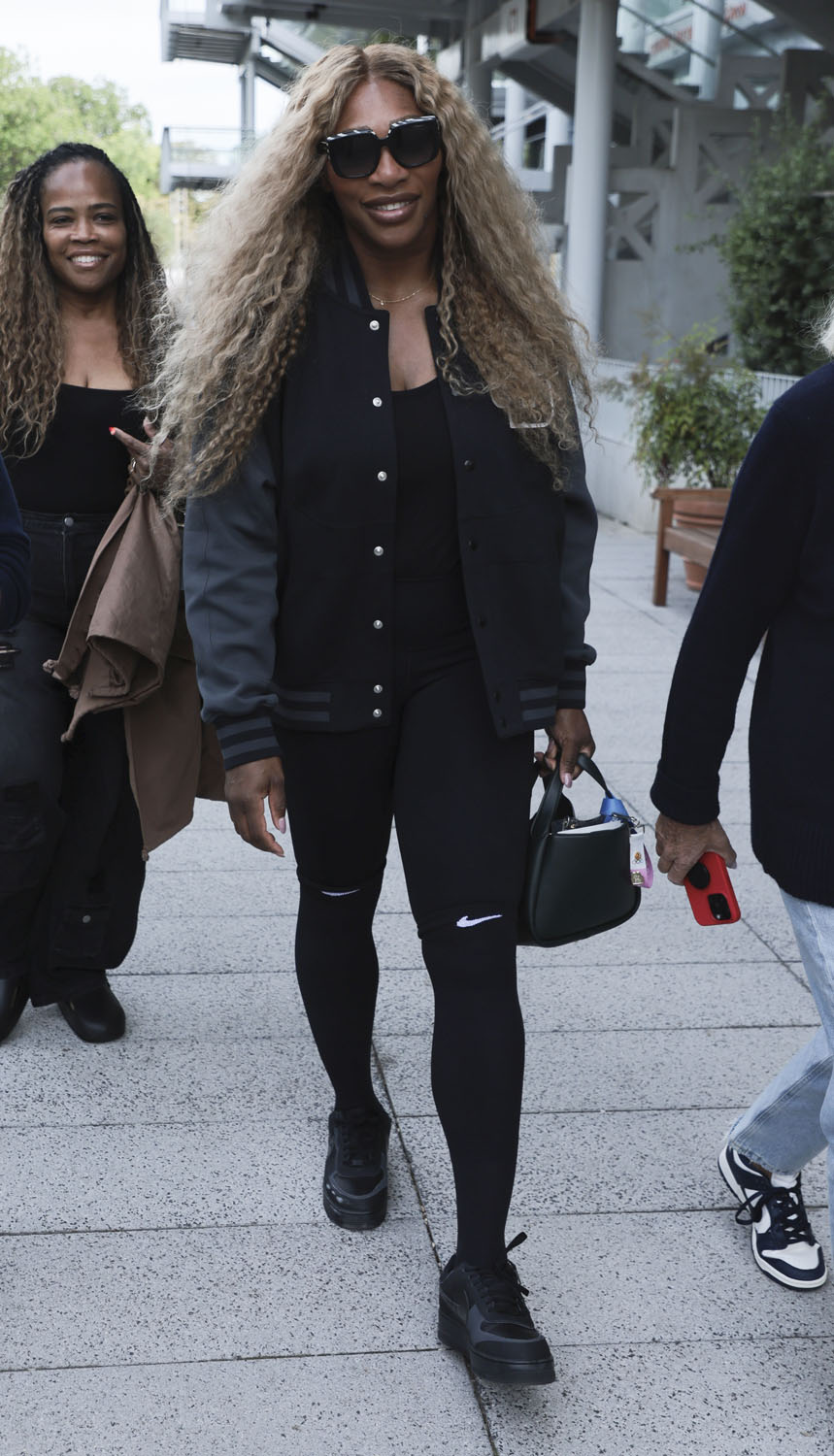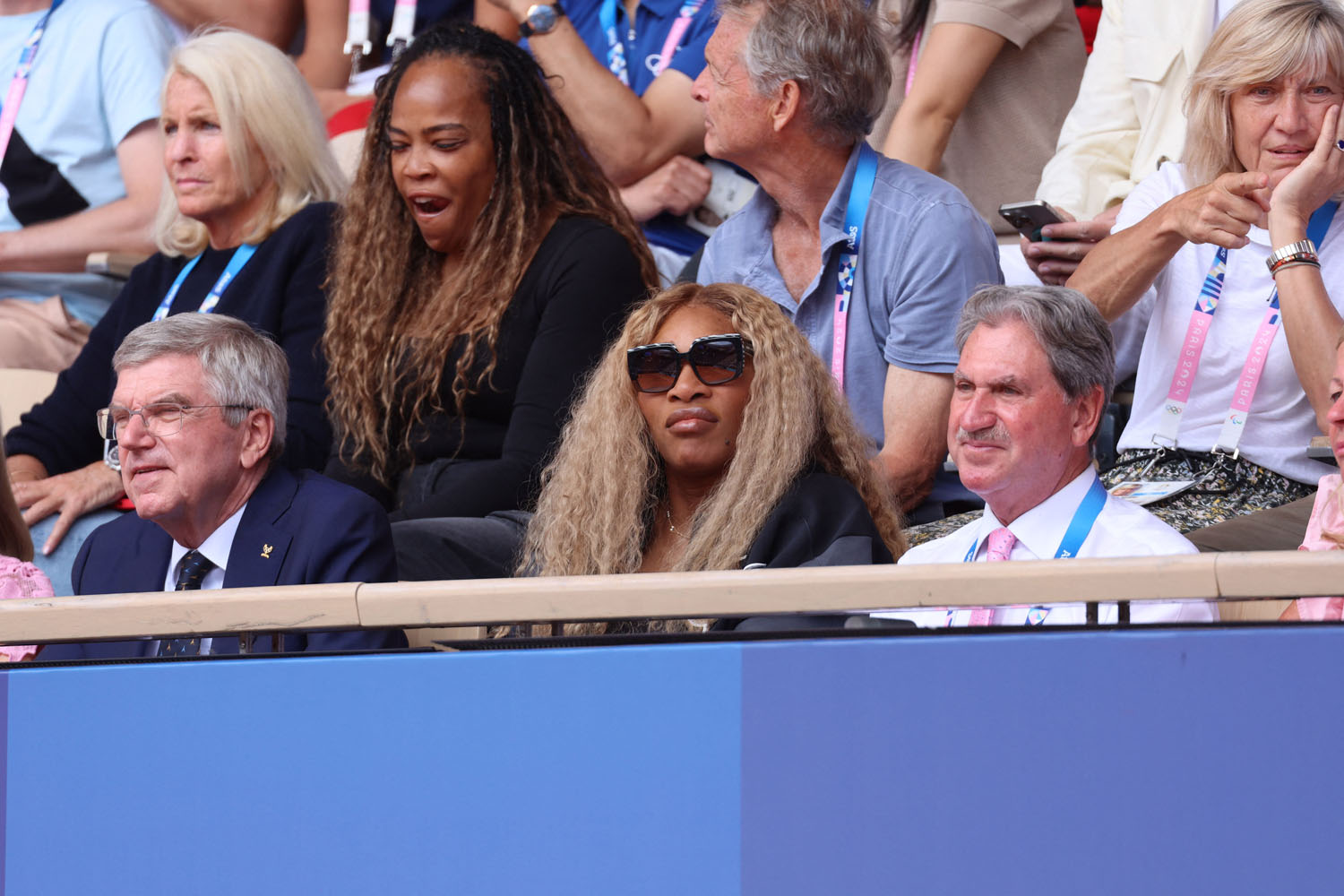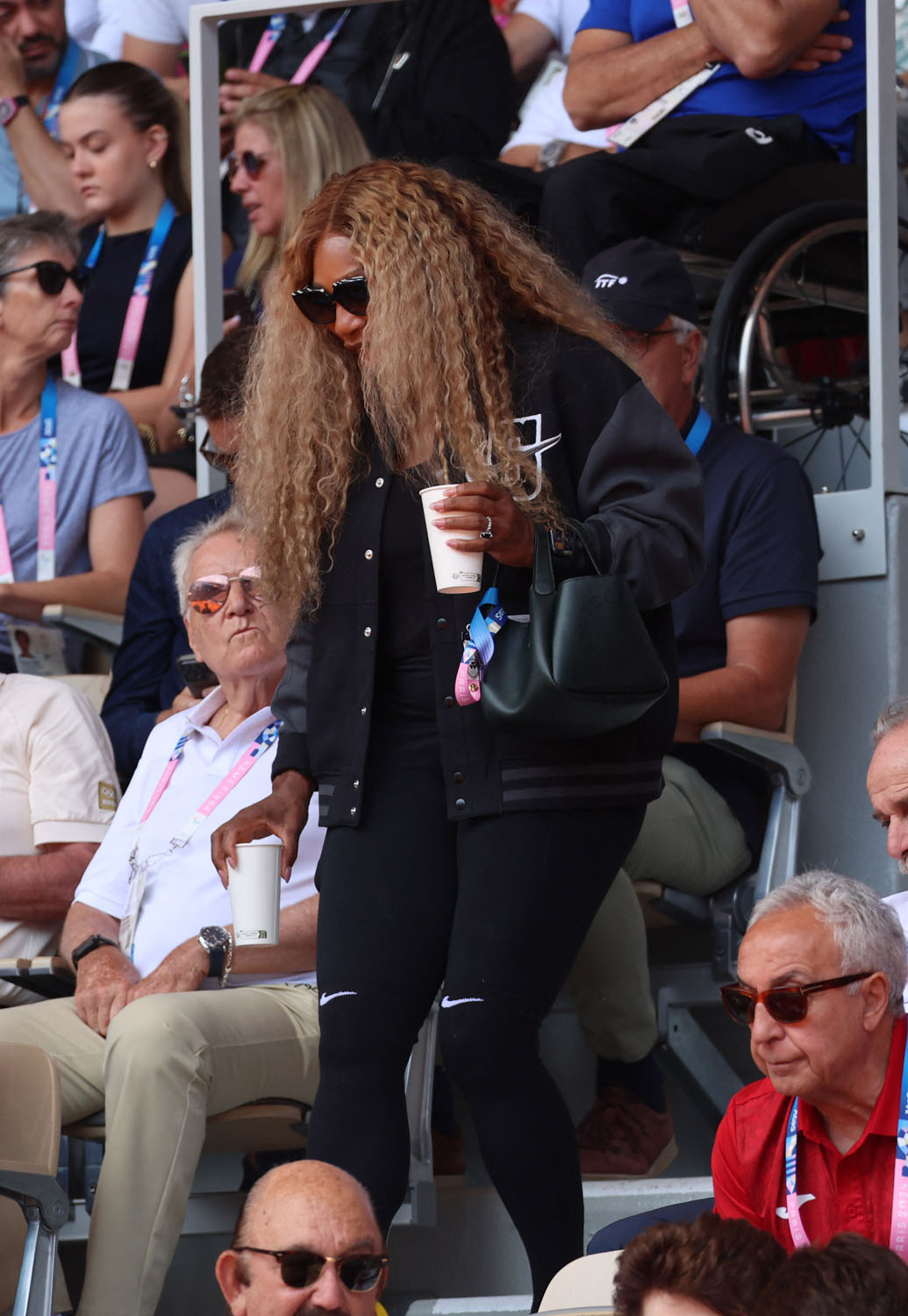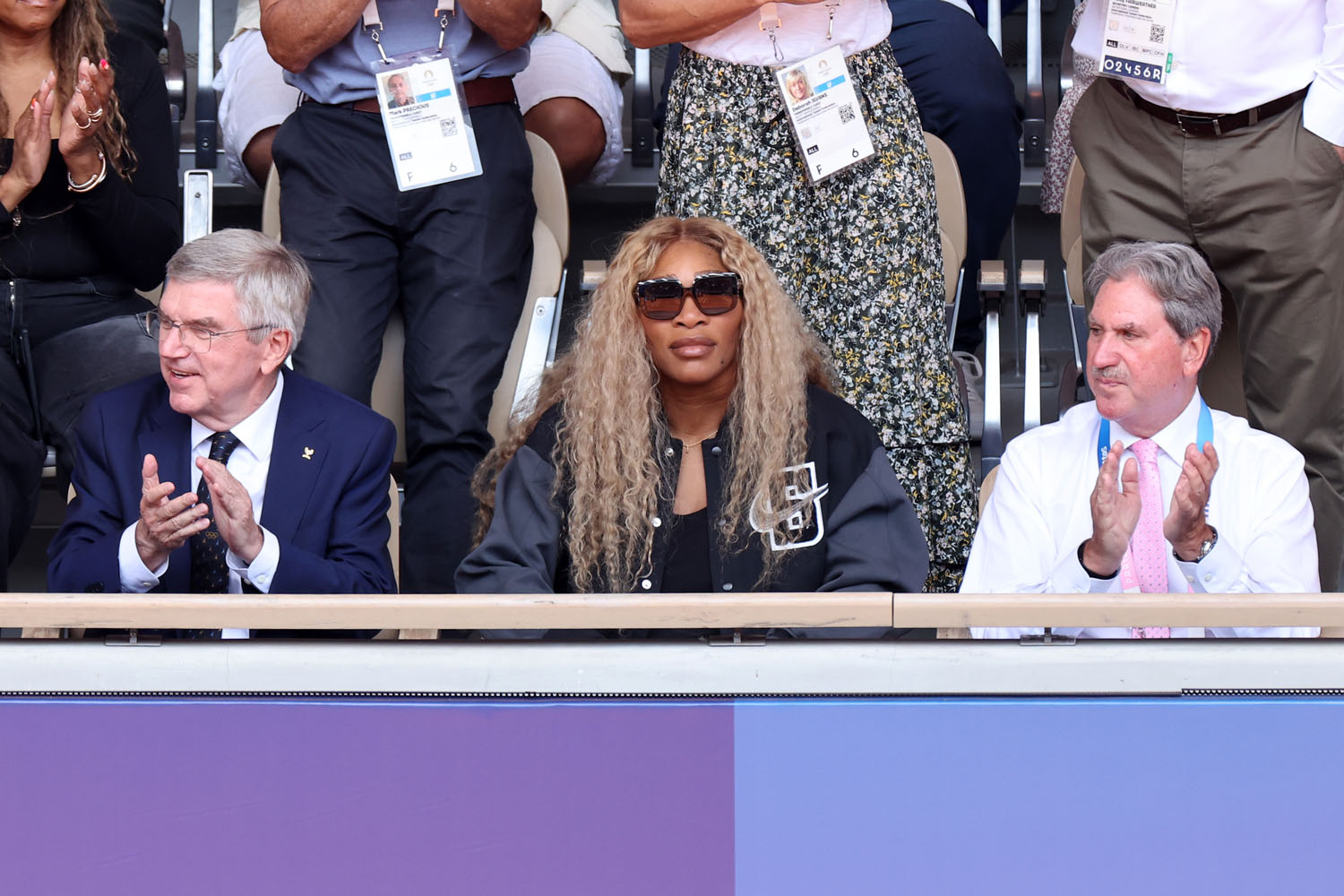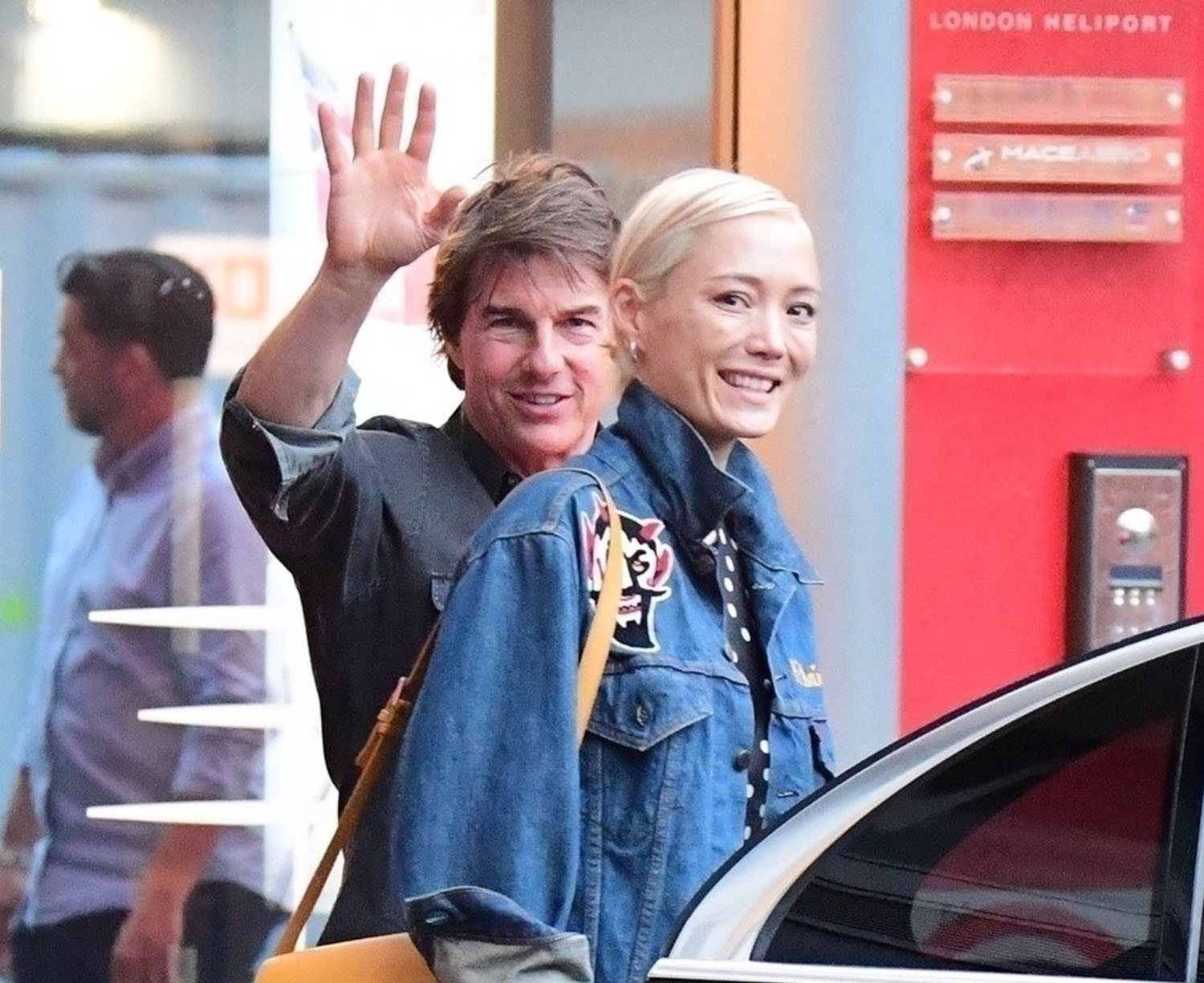It's not just about Serena and a restaurant


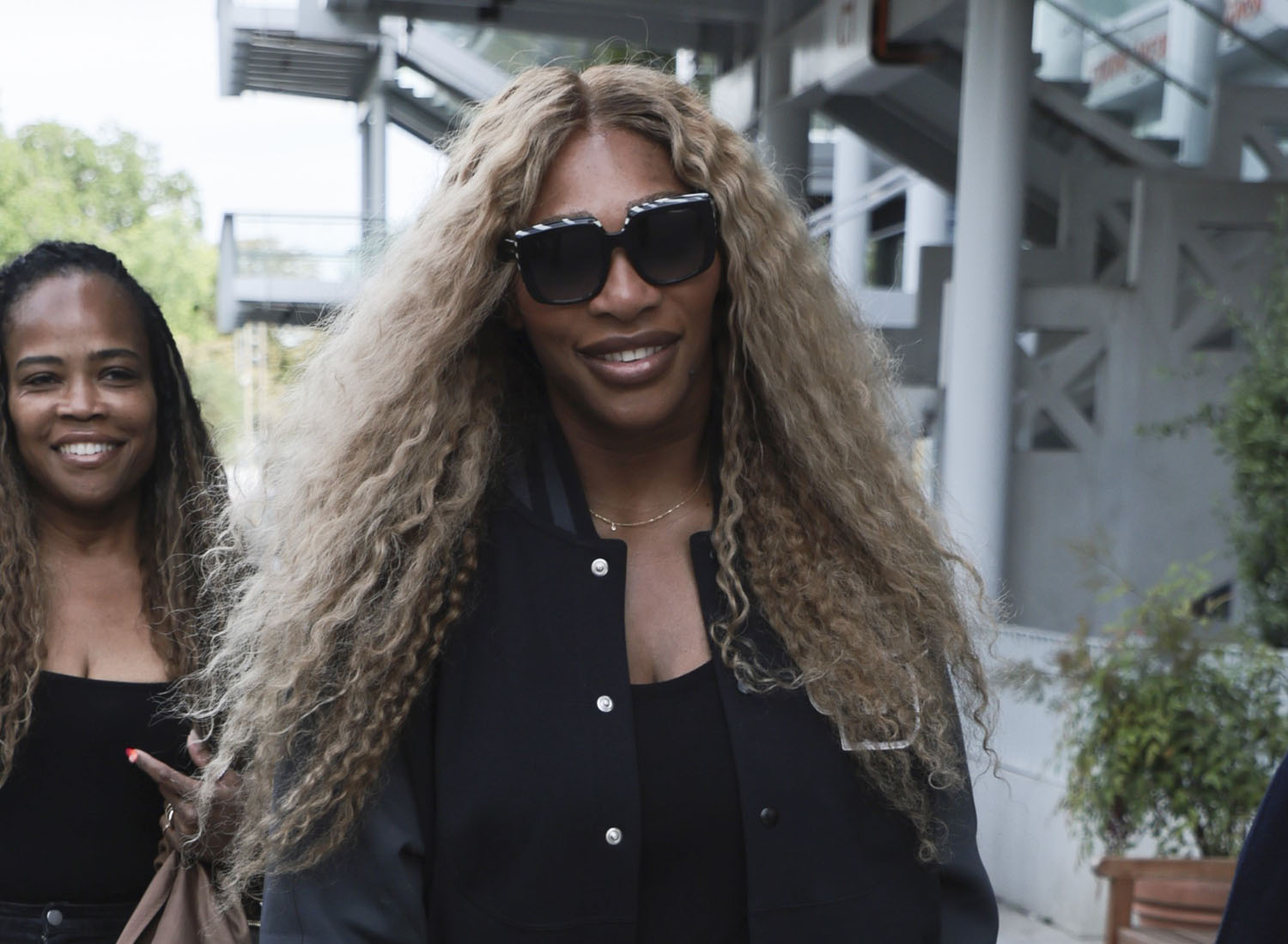
Serena Williams put a Parisian hotel on blast on Monday for turning her and her family away when they tried to gain access to the rooftop restaurant atop the hotel.
Yikes @peninsulaparis I’ve been denied access to rooftop to eat in a empty restaurant of nicer places 🫠 but never with my kids. Always a first. 🙄#Olympic2024 pic.twitter.com/lEGJR5WoEn
— Serena Williams (@serenawilliams) August 5, 2024
Some responses from her followers and supporters lambasted the hotel for not recognizing the tennis legend and accommodating her and her family. But many other responses suggested she was “race baiting” and needed to be more humble.
you are a race baiter and entitled bully. The restaurant was full, jeez1 Just because they told you no they are racists? What were they supposed to do? Kick people out for you?
— Paula Matanovich🍷 (@paulamatanovich) August 6, 2024
One user said it was “entitled as heck” to be upset over the restaurant’s refusal:
Wait are we really telling this place that because she’s a celebrity they should have figured it out? No. If they’re booked, they’re booked and it’s entitled as heck to be upset that they didn’t figure it out because “I’m special.”
— EmILY (@EmilyIsler) August 5, 2024
Another said “talk about privilege”:
I love the people in here saying she deserved special treatment and should have gotten a table in a place that was fully booked. Jesus Christ, talk about privilege, lol.
— Jason “ジェイさん” Jordan (@jasonjordan2814) August 5, 2024
The restaurant responded, saying they were fully booked – and if that’s true, then personally, I think many of the responses we saw were warranted, both the ones lambasting the restaurant as well as the ones suggesting that the people who did arrange in advance to book a table be allowed to maintain their reservation, despite a table request from someone of Serena’s status.
Dear Mrs. Williams,
— The Peninsula Paris (@peninsulaparis) August 5, 2024
Please accept our deepest apologies for the disappointment you encountered tonight.
Unfortunately, our rooftop bar was indeed fully booked and the only unoccupied tables you saw belonged to our gourmet restaurant, L’Oiseau Blanc, which was fully reserved.
Throughout the responses, though, some people seemed to have a deeper understanding of the implications here than others. And I think there are a few reasons this experience reeks of something a bit more… one might say sinister…than a celebrity simply being told “no”. First of all, Serena is a Black woman who, historically, has not been treated the kindest throughout her career. Second, there is a wider issue of Black athletes being treated poorly at the Paris Olympics this year, and the treatment has been so bad that world class athletes may have dropped out of competing. And lastly, this is not a good look for the city, particularly on the heels of allegations of racism on the red carpet in France when the Cannes Film Festival was held there in May.
As Kathleen wrote in this piece back in 2017, Serena has long been the target of racist and sexist attacks from tennis audiences, tennis umpires and tennis players alike. The year following Kathleen’s article, Mark Knight from the Herald Sun in Australia published a derogatory caricature of her. She was deliberately and uncharacteristically huge in size, her lips were over-exaggerated, and she was portrayed with a broken racket.
Beyond Serena’s physical portrayal, though, was also the problematic messaging in the drawing. There was a pacifier tossed in the background, and in the caricature, a white male umpire asks her normal-sized opponent if they could “just let her win”. The drawing implied she was a big baby and an angry Black woman all at the same time – polarizing, contradictory and devastating tropes that have plagued Serena throughout her career.
Nearly 20 years before all of this, sports radio commentator Sid Rosenberg said that the Williams sisters were more likely to pose nude for National Geographic than for Playboy. I trust that I don’t need to spell out what he’s actually implying there.
All of this is to say that for the duration of her career, there has been a constant hum of racism throughout her experiences both on and off the court. So when people on social media saw her criticizing a restaurant for not allowing her access and questioned why she’s pulling the “race card”, we have to remember the role race has played, even in times when it wasn’t her doing.
When it comes to racism in sport, an industry in which Black athletes have always been treated like second-class citizens, it’s common that they face an impossible dichotomy. With a historic and proven track record for being skilled competitors in almost any sport and category you could possibly imagine, Black athletes are often forced to decide between subjecting themselves to inhumane treatment at the hands of sport audiences or living out their dreams of being anything from a basketball player to an Olympian. But rarely can they do both peacefully and without being subjected to racist, and in Serena’s case, sexist attacks.
The problem with this is that it adds another layer of competition for Black athletes. It’s been well-documented by athletes like Simone Biles, who withdrew from competing in the 2020 summer Olympics for the sake of her mental health and went on to be called “weak” and a “failure”. And when Naomi Osaka forewent speaking to the press at the French Open, citing the impact those interviews had on her mental health, she was fined $15,000. While most white athletes only need to worry about their physical performance, Black athletes are tasked with needing the mental fortitude to endure racism as well as having to perform physically.
The Olympics have become such a powerful place to protest and to resist. You’ve got the spotlight of the world on you, and that global attention is valuable. It’s why back in 1968, two Black U.S. athletes, Tommie Smith and John Carlos took full advantage of that spotlight and gave the Black Power salute during the Mexico City Olympics.
Tommie won the gold medal and broke a new world record in the 200m, and while on the podium during the American national anthem, he raised his right fist. John joined him, but raised his left fist instead, to represent Black unity. He also wore a beaded necklace to represent the lynching of Black people in the U.S., and both men wore socks with no shoes to call attention to African-American poverty. The fallout was dire and the pair were condemned and suspended almost immediately.
Protesting these days can be that overt. But this year, it seems to be a bit more subtle. For instance, just minutes before her semifinal, it was announced that two-time Olympic gold medallist and five-time world champ Shelly-Ann Fraser-Pryce would not be participating in the 100m race. Despite reports that her absence had to do with an injury, social media users speculated that it had to do with delays she and American track star Sha’Carri Richardson faced while trying to access the athletes warm up area at Stade de France, as seen in this video.
Two-time Olympic champion Shelly-Ann Fraser-Pryce and world champion Sha’Carri Richardson of the USA were earlier today temporarily delayed entry to the warm-up track at the Stade de France, Paris as they arrived to start preparations for Saturday afternoon’s semi-finals and… pic.twitter.com/vG3QZ2lIJI
— Jamaica Observer (@JamaicaObserver) August 3, 2024
In the video, Shelly-Ann can be heard telling a driver that there had been a last minute, and non-communicated rule change that prohibited the women from entering in their private vehicles because they were not staying in the athletes village, despite successfully gaining access the day prior. She said they were being instructed to walk quite the distance instead, which could absolutely put them at a disadvantage over athletes that didn’t have to exert unnecessary energy on walking.
Shelly-Ann went on to release a statement, describing her “disappointment”, but not mentioning her absence from the race or the real reason behind it. And personally, I don’t think she owes it to anyone to explicitly mention anything. Because the ones that know, know.
During the Cannes Film Festival in May, an exchange between a security guard and Kelly Rowland went viral, which Lainey wrote about here. Lainey’s main point was that security was doing their job, yes, but also doing too much and that Kelly had to stand her ground against some serious microaggressions that day, and would likely have to do it again and again, as many Black women do. And at the Olympics, we are seeing people do their jobs but also do too much to well-known Olympians like Serena Williams and Shelly-Ann Fraser-Pryce. And in response, they are standing their ground.
For decades, the expectation has been that Black people just be content with merely having a seat at the table. Whether that’s taking up space on the red carpet, gaining access to a Parisian rooftop that may have come much more easily if Serena was a white athlete, or to the warm-up location that Olympic title-holding athletes should by all means have access to.
Instead, they are becoming increasingly cognizant of the inherent value they bring to the world of entertainment – be it sport or in Kelly’s case, music. Imagine tennis without Serena and Venus Williams. Imagine the sport of track and field without Black American and Jamaican sprinters. Imagine basketball without Black players. Imagine soccer without Black players.
At its core, so much of this is about two things – access and respect. These athletes are simply asking for access to Olympic podiums, access to warm-up areas, access to restaurants. So what we’re seeing is Black women restrict access to their bodies, to their talents, and to the value they bring to spaces – be it a restaurant, the Olympics or the red carpet. And while these subdued protests may look a lot different than the protest we saw in 1968, it is a reminder that Black women are here. Black women are important. And Black women are to be respected.

